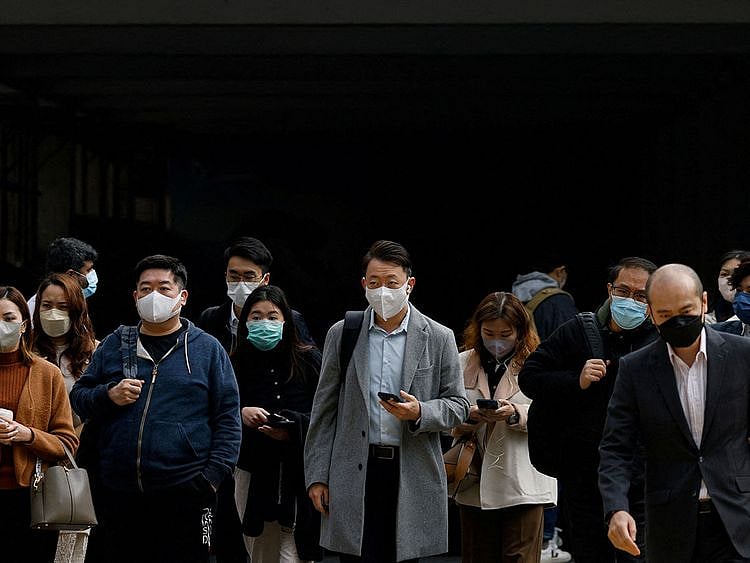Hong Kong will stop requiring masks to be worn in public places from Wednesday, drawing to a close the prolonged Covid era that damaged its economy and standing in the world.
Masks will no longer be needed outdoors, indoors or on public transport, Hong Kong leader John Lee told reporters on Tuesday.
"From tomorrow we are completely returning to normalcy," Lee said. "This year and the next year, we will focus on the economy and development."
Also Read
Flying to Hong Kong from the UAE? COVID-19 travel rules explainedSoon, UAE residents can fly to Hong Kong - or back - with 'free' ticketsHong Kong airport passenger volume surges 2,900%Qantas spends $70 million on new lounges in Hong Kong, HeathrowThe move comes as the government seeks to attract tourists and overseas workers to revitalize the finance hub. Next month will see Hong Kong host the biggest series of international events since often-violent protests in 2019 shut down much of the city, including a music festival, Art Basel and the Rugby Sevens tournament. Hong Kong had dropped most other pandemic restrictions by earlier this year.
People have been required to wear masks in all public places, including outdoors, from July 29, 2020. The rule is enforceable by fines of up to HK$10,000 ($1,275), with police regularly handing out HK$5,000 penalties on the spot for transgressors.
Hong Kong was one of last places on Earth to mandate mask-wearing. At one stage, masks were required even when exercising. The rule increasingly jarred with Hong Kong's push to move beyond the pandemic and lure visitors. As part of its Hello Hong Kong campaign, the city is giving away more than half a million airline tickets starting from Wednesday.
Tourism numbers remain low. In January, passenger volumes at the Norman Foster-designed airport were a third of the level four years earlier. That compares with 77% for Singapore.
Sign up for the Daily Briefing
Get the latest news and updates straight to your inbox
Network Links
GN StoreDownload our app
© Al Nisr Publishing LLC 2025. All rights reserved.
